#maréchaux
Explore tagged Tumblr posts
Text

Album à colorier, dessins de Gaston Maréchaux (1872−c.1936)
76 notes
·
View notes
Text
#Grand Corps Malade#Fabien Marsaux#Maréchaux Assassins#renaud#chanteur#slam#slameur#auteur#compositeur#La Médaille
0 notes
Text
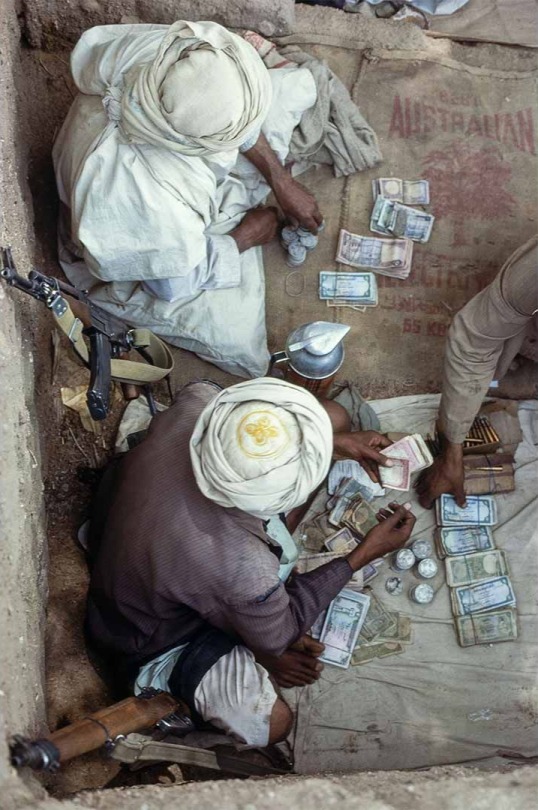

Counting money, Yemen
Photographs by Pascal and Maria Maréchaux
302 notes
·
View notes
Text
Race to Capture the Flagbearer
Summary: On the eve of the start of the athletics events, the Torchbearer and the Flagbearer race to the Stade de France, betting that whoever enters the stadium first with the Flagbearer’s cape gets to chose the method of blessing the track.
Word count: 3.2k
Warnings: Established relationship. Sexual tension. Kissing. Very lame sexual innuendo I’m very sorry lolol
Notes: In honor of the start of the track and field events, my favorite because I used to run track, I give you this hot mess! This one really got away from me. Full disclosure: I have never been to Paris. GoogleMaps and Google Images were absolutely indispensable!
Once again, I strongly recommend reading The Torchbearer and the Flagbearer first, but if not, only a few details carry over: the two exist only during the Olympics, so they die and are reborn every two years; interaction with humans is strictly limited; and the Flagbearer’s horse is named Zeus. I use gendered pronouns only to distinguish between the two; otherwise, their physical descriptions are not gendered.
Read on AO3
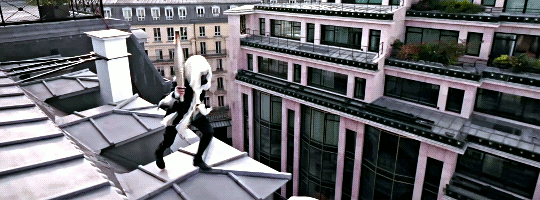
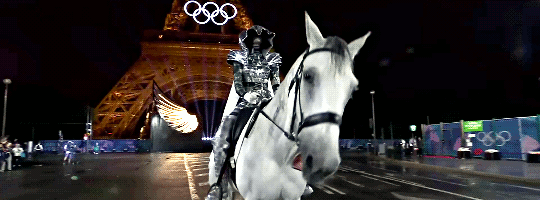
Beyond the city center, just north of the historic hilltop of Montmartre, Paris slumbers as though it were any other balmy summer night. A few stores and restaurants remain open, hosting those too restless to neglect the City of Lights. The low murmur of conversations warms the air beneath the amber glow of streetlights and the verdant canopies of deciduous trees. On the Avenue de Saint-Ouen, the soft, unmistakable clops of a horse turn the heads of those shocked to a standstill on the sidewalk.
The Flagbearer sways in her saddle as she guides Zeus down the northbound lane at a leisurely clip. The few cars caught behind them pass when able, unhurried by the late-night hour. Whispered surprise and pointing fingers follow in their wake. She turns and nods to the few aiming cameras and smartphones in their direction. Several meters behind on the northwest corner of the Boulevards des Maréchaux, two tourists watch the hooded figure continue on her journey.
“Where’s the other one?”
“Other one?”
“They’re always together at night.”
“What are you talking about?”
From behind them, a woman points up and shouts, “Là-bas!”
Heads tilt towards the rooftops. On the east side of the avenue, beyond the cover of the streetlights’ shine, onlookers catch the faint, bright material of the Torchbearer’s hood bobbing from building to building. The gauzy fabric travels quickly, seeming to fly across the uneven architecture, unbothered by safety or gravity.
Sounds of the spectators acknowledging the Torchbearer’s trajectory build to a wave that rolls down the road and crashes on the Flagbearer’s cape. Her hood turns around, the shadow beneath facing the line of buildings to her right. She whips forward and digs her heels into the horse’s sides. In a flash, the rider and her mount take off on a gallop, and the telltale signs of the nimble nightwalker disappear from the rooftops’ edge.
“What happened?” A fourth bystander, looking as confused as the first two, joins the three on the corner.
“Elle l'a vu.” The woman smiles and, with her fore- and middle fingers, gestures from her eyes to the rooftops to the north end of the street.
“Oh, uh, pardonnez-moi,” one of the two tourists attempts haltingly, “je ne parle pas français.”
“Dude, you don’t need to know French to know what this,” his companion mimics the woman’s gestures, “means. She said—”
“‘She saw him’ is what she said,” clarifies the fourth bystander.
“He’s chasing her?”
“Ils font la course.”
“I— Where’s my dictionary? Sorry, could you, uh— répétez, s'il vous plaît?”
“‘They’re racing.’ Dude, I’m going to strangle you.”
“What? But he can’t win. She’s on a horse!”
The woman and the fourth bystander share a laugh as they continue down the road. “Depends on where the finish line is!”
No announcements had been made declaring the particulars of this after-hours contest, but the more observant tourists and Parisians who had witnessed the two hooded figures about town before could more or less divine where they were headed. The Stade de France marked the end of their race, the venue housing the track for which their relay was honoring. No one, however, not even those with firsthand experience of past Olympic Games, could guess the particulars of their side bet.
“The athletics events begin in a few hours,” the Torchbearer had said to the Flagbearer, 90 minutes earlier, as they crossed the esplanade of the Palais de Chaillot in the direction of the Seine.
She hummed and smiled, gazing at the ground and matching his stride, her hands folded behind her back. “One of your favorites,” she said fondly.
From the top of the steps leading to the Jardins du Trocadéro, the Olympic Torch was still visible in the sky. Small groups of tourists flitted about the site, aiming all kinds of photographic equipment between the Olympic Flag flying above the Place du Trocadéro to the Eiffel Tower glittering above it all.
“The stadium is about 10 kilometers away,” the Torchbearer continued, pointing in a general northeasterly direction.
“I am aware of the distance, ma chère.”
“Shall we go over the rules?”
“Zeus,” the Flagbearer lilted, turning to face her mount, “do you need to be reminded of the rules?”
Following close behind, the horse shook his head. The two Olympic guardians had spent the last few nights inventing details to include the stallion in their quirky tradition. He was forbidden from trotting faster than 12 kilometers per hour, the average speed of a human man running. Only when the Torchbearer was in sight could Zeus gallop to his top speed; once out of sight, the horse would return to an average walk. The Flagbearer had offered to send Zeus ahead to the stadium in an attempt at fairness, but even she knew her armor was a handicap in the Torchbearer’s favor. She needed her steed.
“Perhaps we should lift the ban on mechanical vehicles, just this once,” the Flagbearer offered sheepishly. She felt guilty that for all of the Torchbearer’s physical prowess and show on the rooftops during the Opening Ceremony, he was still no match for one of Earth’s fastest land animals.
“No, my love. I do not believe Zeus gives you an undue advantage. Besides, I have my own ideas for bypassing our usual rule.”
“Oh?” She stopped at the edge of the esplanade and crossed her arms. “Then perhaps I should remind you that a bicycle is a kind of vehicle and therefore forbidden.”
The Torchbearer laughed. “I know better than to repeat my own mistakes. No, I have something even less mechanical in mind.”
“Would you care to share so that I may approve your means of cheating?”
He gasped and recoiled in faux offense, bringing his fingertips to his chest in mock shock. “Darling, how dare you accuse me of such a thing! It is not in our nature to cheat!”
“I know,” she conceded carefully before resuming her command, “but just because the equipment is featured in the Games does not mean it is allowed in our little competition. However, I suppose for tonight, I can allow you to skateboard.”
He chuckled and shook his head. “You still have not guessed correctly. No, I am certain these types of wheels are permissible. No human law has ever classified them as a form of transportation.”
The Flagbearer dropped her arms to her sides and squared her shoulders, straightening her posture. “Now I am intrigued.”
Light cheers and applause bubbled up around them. The two looked up in time to watch the Olympic Torch descend out of sight. Only the Eiffel Tower remained bright in the inky night.
“That is your cue, chérie.” The Torchbearer extended a hand in a show of sportsmanship. “Good luck.”
The Flagbearer accepted the gesture. “Bonne chance à toi, aussi, my dear. If you do reach me, try not to pull too hard. Falling from Zeus’s height would hurt even more in this armor.”
“I shall hold back my strength for your safety, mon amour. Now go.”
The Torchbearer watched his partner mount her steed and quickly gallop back through the esplanade, gaining more spectators with each echoing hoofbeat. When she reached the road, she brought Zeus to rear on his hind legs. Gasps of surprise followed. Once Zeus righted on all four legs, she blew a kiss to the Torchbearer who caught and tucked it into his vest against his chest. With a nod, horse and rider trotted in the direction of the Arc de Triomphe. He waited for the sound of hoofbeats to fade away before running down the steps and across the garden and banking left to try to cut them off through neighboring roads.
What would normally have been a swift, straightforward race from the Place du Trocadéro to the Stade de France turned into an extended excursion into the more hidden side streets of Paris. Previous incarnations of the Olympic guardians allowed them to run unencumbered. The Flagbearer’s armored form, paired with Zeus’s presence, meant that they needed a creative twist to make up for their unique limitations. Eyeing the Flagbearer’s cape one night, the Torchbearer suggested a riff on the rules of Capture the Flag: one flag and one territory instead of the usual two each, her cape standing in for the desired marker and the stadium the sole safe place. Whoever entered the Stade de France first with the Flagbearer’s cape would win. What was once a race became a chase.
For more than 10 kilometers, the Flagbearer evades the more agile Torchbearer. She never hears him coming, his footsteps too light even in the silence of empty streets. She had been halfway through the Parc Manceau, hoping to use its lawns and trees to muffle Zeus’s steps, when she felt a rush of air graze her right leg. Her arm shot behind her and grasped her cape, its tough material caught up in the momentary gust. She sighed in relief just as the scrape of plastic wheels echoed on the pavement. She turned around and watched the Torchbearer come up from a crouched position and straighten up a few inches taller than his usual height.
“Rollerblades!” The Flagbearer was impressed. “Darling, you think of everything.”
He laughed. “They are not as quiet as I need them to be, but at least I have a chance to match Zeus’s trot.”
“It is not your speed that needs improvement.” She threw her cape behind her, taunting him as it fluttered back into place. “Your grip is lacking, my dove.”
With a swift tug of her reins, she brought Zeus to a gallop across the lawn where the Torchbearer’s wheels could not follow. He glided down a path to try to cut them off at the park’s edge, but lost sight of them behind the foliage. He stared at the five-road intersection and quickly picked up Zeus’s hoofbeats echoing down the Rue Georges Berger. Though he couldn’t see the source of the sound, he was sure of its direction. He took off down the Rue de Thann, hoping to catch them at the Boulevard Malesherbes. When he reached the corner, he found Zeus waiting riderless. The Flagbearer would repeat this strategy throughout the night.
With Zeus’s hoofbeats no longer a reliable sign of his partner’s presence, the Torchbearer takes to the rooftops for the higher vantage points. He flies freely — no cars or pedestrians to block his journey, no trees or walls to block his view. Despite the cloak of darkness hiding potentially dangerous nooks on which to trip, his step is sure. He falters only when he reaches the main thoroughfares, several lanes too wide to jump, and is forced to climb back down to the sidewalk. When he swivels around, hands on his hips and unsure of the Flagbearer’s location, a few wide-eyed tourists point him in the right direction. He nods or salutes before sprinting to the nearest building and resuming his flight across the darkened rooftops.
Meanwhile, the Flagbearer continues to use sound to her advantage. When she is not deploying Zeus as a decoy, she also relies on the few onlookers in her wake. Every time the Torchbearer nears, a low swell of claps and gasps announces his proximity, the spectators’ excitement at witnessing the phantom figure reenact his debut performance rippling through the air like a lighthouse beacon on a foggy night. The audible warning allows her enough time to pinpoint his location and break for a darker or wider street. Despite the weight of her armor and the agreed-upon limitations on Zeus’s abilities, she manages to stay ahead and out of reach of the Torchbearer.
Eventually, after breathless hours of looking over her shoulder, the Flagbearer comes into sight of the Stade de France. She is relieved but restless. It had taken longer to reach the stadium than she’d anticipated, and her daytime duties began to slip into the forefront of her mind. She senses dawn just below the horizon, hiding for another hour before warming Paris once more. She felt the urgency of concluding their game.
With no sign of the Torchbearer, the Flagbearer dismounts and walks the remaining distance to the parking lot surrounding the stadium. Zeus’s hoofbeats punctuate the whoosh of the few cars passing on the highway. They are 100 meters from a western gate when she hears the familiar roll of plastic wheels fast approaching behind her.
Without turning around, she smacks Zeus’s rump and grabs the horn of her saddle. She lifts herself high enough to put a foot in the stirrup as the stallion gallops towards the gate. She clings to her steed’s side, pushing sore muscles to their breaking point as her cape whips and drags in the wind. She pulls herself up and over to straddle the saddle and grasps for enough stability to turn her head around. She sees no hooded figure.
Only when Zeus stops abruptly in front of a gate does she see the Torchbearer. He had rolled to a stop a few meters from her position, holding her cape aloft in his right hand and waving low with his left. The Flagbearer quickly dismounts and points for Zeus to step away from the gate.
“Looks like I won, my sweet,” the Torchbearer taunts across the distance.
“Not yet, darling.” The Flagbearer advances slowly, cracking her neck and loosening her shoulders for what she assumes could turn into a wrestling match. “You have not entered the stadium proper. This parking lot is open space.”
His right hand drops to his hip, her cape billowing in the breeze. “You cannot outrun me in your armor.”
“Then play fair, ma chère. You know your agility is hampered by those tiny wheels.”
He lets out an amused huff before agreeing to her concession. He kneels on her cape, alternating knees so as not to lose it to the wind, and takes off the rollerblades. From behind his jacket, he produces and quickly puts on his shoes, readjusting his leg gaiters over the treads. All the while, the Flagbearer maintains her distance.
“A lesser opponent would have rushed me by now,” the Torchbearer observes as he stands up.
“A lesser opponent would have conceded defeat,” she counters as she steps forward.
He strides to the side, and she mirrors his move. “How do you imagine this will end, my dear?”
“With you pinning my cape back on me and blessing the track my way.”
“Darling, I would gladly pin you any day, but do tell what you had in mind if you do indeed win.”
The Flagbearer shakes her head as she takes another step closer. “As much as I enjoy your sense of humor, I would not deign to give you ideas before my victory is secured.”
“A wise move perhaps, but in truth, you read my mind.” The Torchbearer jumps several steps to the right, the entrance briefly in view, before she blocks him. “I can tell you with the utmost certainty that when I win, I shall pin you on the track.”
He is close enough to spy a smirk on her lips. She giggles and says, “And you call me insatiable.”
“My hunger burns eternal for you, my angel sweet.”
She comes up to her full height and points a finger in his direction. “You are distracting me.”
“An effective strategy, I would say. I have lured you away from the entrance.”
“By closing the distance between us.” The Flagbearer reaches out and jabs the Torchbearer’s shoulder with a firm finger. She enters into a slight crouch, palms outstretched, ready to reclaim her cape.
“Well, if we are to dance, mon amour,” he takes her cape in both hands and bunches opposing corners in his fists, “we must step closer.”
He swings the length of the cape over the Flagbearer’s head and around her shoulders, pulling her into his chest. She looks up, grabs the remaining free corners fluttering above their heads, and swings them behind his shoulders. They land in each other’s arms, enveloped by the Olympic Flag.
Hidden beneath the cover of the opaque cape, the Flagbearer removes her gloves, stuffs them into her belt, and brings gentle fingertips to the bottom edge of the Torchbearer’s mask.
“You win, my love. Would you like a taste of your prize?”
She lifts the mesh just enough to expose his mouth. His breath warms her hand as she presses the pad of her thumb across his soft lips. She cradles his jaw in both hands, keeping his mask in place over his nose, as they meet for a fevered kiss.
Only the Flagbearer is privy to the face beneath the Torchbearer’s mask, the covering quickly removed during private moments behind closed doors. No rule existed banning the public exposure of their countenances, but the Olympic guardians thought it best for their appearances to remain as neutral as the intentions behind the performance of their duties. They are as much a symbol of the Games as they are its players, and only with their features hidden can they best represent the best of humanity in all its forms and functions.
From the top of the steps leading to the upper parts of the stadium, the crackle of a security guard’s radio travels through the air and interrupts the lovers. They part lips with heavy sighs, reluctant to meet the world and its inhabitants.
“Change of plans,” the Torchbearer mumbles as he chases the Flagbearer’s chin with his mouth and finds the lower edge of her cuirass with his hands. “This audience will not do.”
She giggles and runs her hands down his chest, searching for the warmth beneath his many layers. “Our race took too long. If only we had reached the stadium sooner,” she sighs as he traces her jaw with the tip of his tongue and latches his lips just below her ear, “when it was less populated.” She pulls him closer, reaching for the backs of his neck and waist.
“A simple walk must suffice.” He pulls away, lowering the Flagbearer’s hands by her wrists. “I have had enough racing for tonight.”
“Have I worn you down?” She tugs on the Torchbearer’s lapels.
He laughs as he removes her gloves from her belt and glides them over her hands, the wind at his back keeping the cape in place. “I bow to your mastery of stealth and strategy.”
“Well, I learned from the best.” She readjusts his mask under his chin before he flips the cape behind her and secures it under her spaulders. “Be honest, dear, did I tire you too much?”
“I can manage a 400-meter walk.”
“And afterwards?” The Flagbearer nudges her hand into the crook of his arm, pressing her shoulder to his, and starts towards the stadium.
“I have enough strength for my duties. You need not worry.”
“I know. I had hoped for my own blessing before sunrise.”
The Torchbearer laughs to the sky before swinging his arm around her waist and opening his side to her embrace. “Darling, you truly are insatiable.”
“I merely wish for you to claim your prize.”
“The walk around the track—”
“Is still part of our duties. Your prize for catching me is far more enjoyable.”
He stops to hold her hands and run a finger along her jawline. “Then let us race properly, quickly around the track, so I may claim you.”
The Flagbearer giggles and starts down a tunnel leading into the belly of the stadium, the weight of her boots and the drag of her cape slowing her sprint. The Torchbearer captures her quickly.
Translations: Là-bas! - Over there! pardonnez-moi, je ne parle pas français - forgive me, I don't speak French répétez, s'il vous plaît - repeat, please Bonne chance à toi, aussi - Good luck to you, too
#*#olympics#paris 2024#olympics 2024#paris olympics#silvertorch#phantom of the olympics#phantom torchbearer#phantom of the games#torchbearer#assassin's creed torch bearer#flagbearer#flag knight#fic#fanfic#fanfiction#gifs are mine#why do i always pick the dying ships lolol KEEP 'EM ALIVE FOLKS#masked torchbearer
49 notes
·
View notes
Text

translation:
"Soldiers, face to face! Let's get ourselves killed!"
They were pretty suicidal at the time when you think about it...but why not!
(Source: "Les maréchaux de Napoléon" buy Louis Chardigny)
15 notes
·
View notes
Text

A WHITE MARBLE BUST OF MARÉCHAL SOULT (1769-1851) by Jean-Antoine Houdon (Versailles 1741-1828 Paris), 1813)
'There are only two known marble busts of Maréchal Soult by the great French sculptor Jean-Antoine Houdon. The first was created for the salle des Maréchaux in the Palais des Tuileries and was displayed among other portrait busts of France's leading marshals, generals and navy men. However the bust disappeared in 1871 following the great fire at the Tuileries. The second bust was given to Soult's family, and is mostly likely the present sculpture. This second bust is recorded to be dated 1812, while our bust is dated 1813. However, the pen inscription to the reverse indicates that the bust descended from the family of Count Pierre de Mornay Soult de Dalmatie, Marquis de Mornay Montchevreuil (1837-1905), who was the grandson of Maréchal Soult via Soult's daughter, Joséphine Louise Hortense Soult de Dalmatie (1804-1862).'
(Source)
#Jean-de-Dieu Soult#Marshal Soult#Maréchal Soult#Jean-Antoine Houdon#Napoleon's Marshals#Napoleonic Wars#Napoleonic Era
27 notes
·
View notes
Text

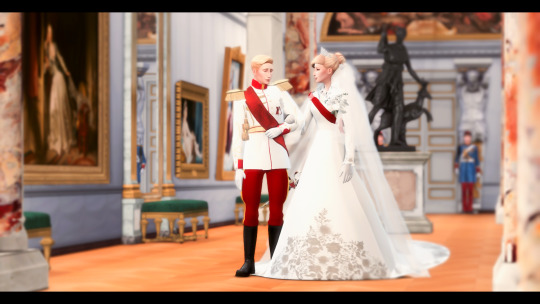
Napoléon V: And my mother said "marriage tests your patience, you know" Charlotte: Is that true? Really?
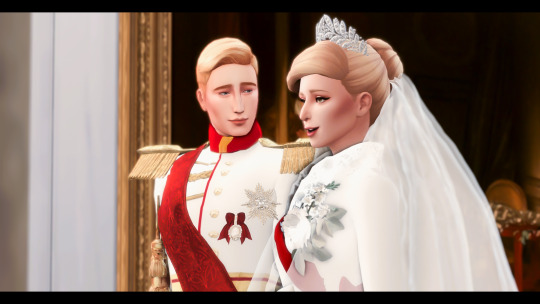
Napoléon V: Not yours? Charlotte: Mine said "Charlotte I envy you, I wish I'd married such a handsome young man at your age"

Napoléon V (laughing): My God, I didn't want to know after all! Charlotte: My father started to grumble Napoléon V: Let's hope he'll smile again at the ceremony
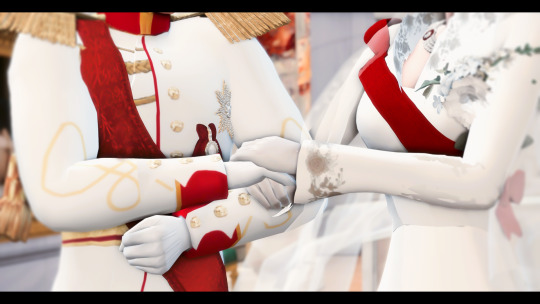
Charlotte: Yes, he'll be smiling. He's delighted for us
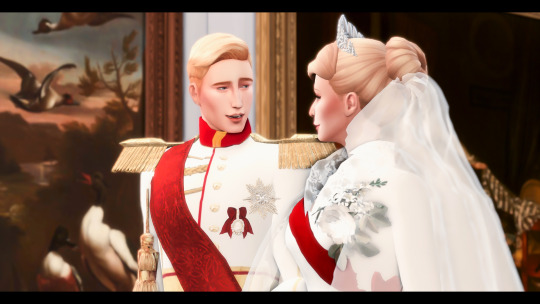
Napoléon V: I know that my father would also be happy about our union, he's always had nothing but good things to say about you Charlotte: I didn't know. I am blessed then Napoléon V: Yes, Father would be proud of us both. We will do a lot for Francesim, I'm sure
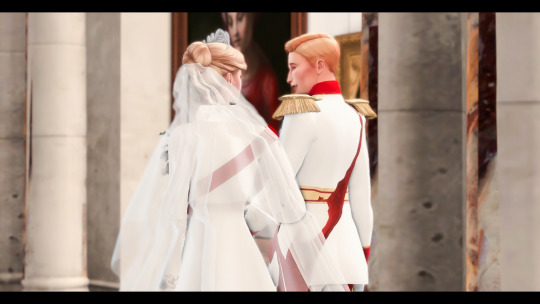
⚜ Le Cabinet Noir | Palais des Tuileries, 20 Prairial An 230
Beginning ▬ Previous ▬ Next
The civil marriage ceremony is about to begin, and Napoléon V and his fiancée Charlotte join the Salon des Maréchaux.
⚜ Traduction française
La cérémonie du mariage civil va commencer, Napoléon V et sa fiancée Charlotte rejoignent le Salon des Maréchaux.
Napoléon V: Et ma mère a dit "le mariage éprouve la patience tu sais" Charlotte : C'est vrai? Sérieusement?
Napoléon V : Pas la tienne? Charlotte : La mienne a dit "Je t'envie, j'aimerais avoir épousé un aussi beau jeune homme à ton âge"
Napoléon V (rigole) : Mon Dieu, je ne voulais pas savoir tout compte fait! Charlotte : Mon père a tiré une de ses têtes! Napoléon V : Espérons qu'il reprenne sourire à la cérémonie
Charlotte : Oui, il sera souriant. Il est ravi pour nous
Napoléon V : Je sais que mon père serait également satisfait de notre union, il n'a toujours dit que du bien de toi Charlotte : Je l'ignorais. Je suis bénie alors Napoléon V : Oui, père serait fier de nous deux. Nous ferons beaucoup pour la Francesim, j'en suis persuadé
#simparte#ts4#ts4 royal#royal simblr#sims 4 royal#sim : louis#sims 4 fr#sims 4#weddingV#le cabinet noir#sims 4 royal story#sims 4 royal simblr#sims 4 royalty#ts4 royals#ts4 royal family#ts4 royal simblr#ts4 royalty#ts4 royal story#sim : charlotte
54 notes
·
View notes
Text
Maréchaux d'Empire: La gloire pour destin
Quelle horreur!
On the other hand, this book will keep me alternating between guffaws and serious eye-rolls for days.
The "replacement" for David Chandler's anthology, Napoleon's Marshals, published in 1987 with each of the 26 mini-bios written by for-real scholars [and not just Americans, either] is this November 2023 anthology edited by Francois Houdecek, who holds forth at the Sorbonne, claims to be a "disciple" of Jean Tulard [I believe M. Tulard has thousands of those!], and is involved in all sorts of activities and scribblings involving Naps. He is also responsible for gathering and organizing vast quantities of Napoleon's correspondence, so kudos for that.
However--and oh, my! what a huge "however" this is!--the 26 contributors range from the marginally average Pierre Branda to the apparent dregs of French scholarship whose names have never resonated outside the borders of Gallica. Each of these articles is depressingly cardboard, flimsy with details, utterly bereft of any attempt at analysis or understanding of the individual's character, talents--or lack thereof--and other useful and expected details, even in an anthology. These contributors apparently competed to see who could write the most drivel using the fewest sources. Naturally, I went straight to the entry about Lannes, and by the time I reached the end, I had permanently dislocated my eyebrows. The "author" of this travesty is Jacques-Olivier Boudon, whose credentials, on paper, are impressive but whose knowledge of Jean-Boy is worse than passing; it is non-existent. The reason for that is based on M. Boudon's sources:
He cites Lannes’ “official dossier” in the SHD, which I copied before I left, so I know every page and every sentence in it, and I know you won’t find squat that is useful unless, of course, you care how much putting on Mozart’s Requiem cost, and who sang the tenor solo.
High on the hit parade list is Regis de Crepy’s smarmy bio of the Lovely Louise, another book I can quote endlessly. Boudon used one letter from that.
Boudon also took bits and pieces from the three more recent French biographies by Dammame, Zins, and Willette—although the latest was published in 1994—and explained what I thought about them in a previous blog.
The absolutely most hysterical “source” is the 2002 historical fiction by a lovely 93-year-old woman, Penelope Le Fers-Dupac, who lives in Lectoure and who I know [I also know the biographer Jean-Claude Dammame, but that’s another story]. This novel is called “Le Mousquetaire de Napoleon: L’autre vie du marechal Lannes.” Make of this what you will, but it is the wonderfully entertaining, hilarious, and fictional tale of Jean-Boy’s first marriage.
I am appalled that this person didn’t do justice to Jean-Boy in an anthology where he would have shone at the top in capable hands. I know who's the real expert here, and I certainly don’t mind if someone also chooses to write about My Guy. But he or she had damn well better get it right, and this French morceau de merde massacred his subject.
BTW, joachimnapoleon, have you encountered Vincent Haegele? He did Murat no favors here, either. Thanks for reading the rant. I feel better.
#jean lannes#don't bother#napoleon's marshals#truly terrible french writng#non-history#who are these idiots?
17 notes
·
View notes
Text

Jacques Bernard "Jacky" Ickx et John Young "Jackie" Stewart sont désormais les Grands Maréchaux de Carros e Pilotos. © Bernard Cahier / Getty. - source Carros e Pilotos.
14 notes
·
View notes
Text
Tagged by @after-perfect
Last song : Respire encore by Clara Luciani
Favorite color : green, mostly. Even my bedroom is green.
Last book : La part d'ombre des maréchaux de Napoléon, generously offered to me by @cadmusfly when we were in Paris
Last movie : I had a blast rewatching La Folie des Grandeurs, it's always hilarious. The jokes get me every time, and Blaze is really adorable.
Last show : my interest in servants in history pushed me to try Downton Abbey. I know it gets better than season 1, so I reserve my judgment for now.
Sweet/savory/spicy : I like all but I have an indomitable sweet tooth. Even as I type this I am chewing on some chocolate
Relationship status : happily together with a dear friend of many years
Last thing I looked up : pictures of the SS France now SS Norway
Current obsession : they're all documented on my blog tbh
Looking forward to : Nothing, I'm on holiday and just chilling
Now I tag people and I have no idea who might have done this or not - here goes @ghostapple8 @mayhemchicken @aedesluminis @amypihcs and anyone who sees this I'm sure I forgot plenty of friends
6 notes
·
View notes
Text
youtube
Sandro Blumenthal (1874-1919) - Piano Quintet No. 2 in G Major, Op. 4
I. Adagio sostenuto - Allegretto deciso e con moto 0:00 II. Andante cantabile assai sostenuto 9:36 III. Scherzo: Velocissimo 15:16 IV. Finale: Allegretto quasi a piacere - Allegro assai vivace e brillante - Tempo dello Scherzo - Adagio - Molto adagio - Tempo I - Più presto 21:03
Oliver Triendl, piano
Daniel Giglberger, violin 1 Hélène Maréchaux, violin 2
Corona Golomoz, viola
Bridget MacRae, cello
4 notes
·
View notes
Text
Maréchaux d’Empire

Berthier, Bessières, Murat, Soult, Poniatowski (Ney on horse?)
40 notes
·
View notes
Text
1er mars 1815 : Napoléon débarque à Golfe-Juan, c'est le début des Cent-Jours
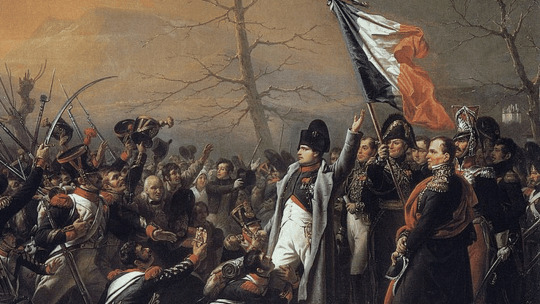
Le 1er mars 1815, un événement historique majeur se produit lorsque Napoléon Bonaparte débarque à Golfe-Juan, marquant ainsi le début d’une période connue sous le nom des Cent-Jours. Ce jour-là, une petite flottille apparait au large des côtes françaises, mettant fin à la période d’exil de Napoléon sur l’île d’Elbe. Parti de l’île d’Elbe le 26 février, Napoléon est à bord de l’Inconstant, accompagné de six autres navires. Avec lui se trouvent ses proches et environ mille soldats de sa garde.
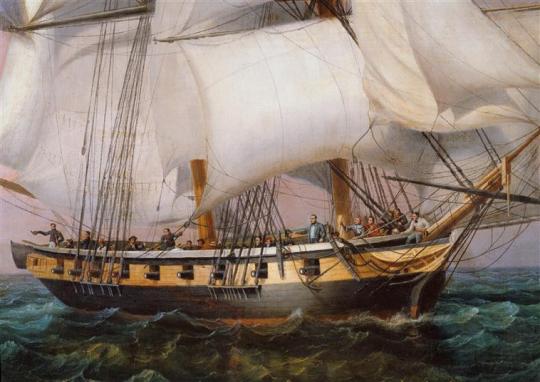
Aux côtés de l’Empereur se trouvaient les hommes qui formaient en quelque sorte son gouvernement sur l’île d’Elbe : le général Bertrand, chargé des affaires intérieures et l’un de ses plus proches conseillers, le général Drouot, assumant le rôle de ministre de la Guerre, et Peyrusse, trésorier de la Couronne. Se trouvaient également le général Cambronne, le Dr Fourreau de Beauregard mais aussi Pons de l’Hérault, ainsi que son personnel, incluant Marchand, son premier valet de chambre, et Saint-Denis, surnommé “le mamelouk Ali”.
Pendant la traversée, Napoléon s’était retiré dans sa cabine, plongeant dans l’élaboration des proclamations qui marqueraient son retour. Ces missives, soigneusement préparées à l’avance, étaient destinées à être distribuées dès son arrivée, toutes deux datées du 1er mars, jour symbolique de son débarquement et du renouveau.
Dans son discours adressé au peuple français, il justifiait son retour en expliquant les circonstances de son départ en 1814, attribuant son échec à la trahison des maréchaux Augereau et Marmont.
Aux soldats, il dévoile les voies de la gloire et prononce les paroles qui deviendront emblématiques :
“La victoire avancera au pas de charge. L’Aigle, arborant fièrement les couleurs nationales, planera de clocher en clocher jusqu’aux tours de Notre-Dame.”
Après trois jours de navigation, la flottille arrive enfin au mouillage dans l’anse du golfe Juan. Napoléon, arborant fièrement le drapeau tricolore français, décide de procéder au débarquement. Une escouade de grenadiers est envoyée en reconnaissance pour s’assurer que les côtes sont sûres. La côte est en effet sans défense, aucune batterie côtière n’étant présente à cet endroit, démontrant ainsi que les autorités n’ont à aucun moment envisagé que Napoléon tenterait un débarquement dans le sud de la France.

Le lendemain matin, Napoléon consulte une carte pour planifier la suite de son itinéraire vers Grenoble. Il décide de suivre la route des Alpes plutôt que de traverser la vallée du Rhône, où il a été conspué l’année précédente en se rendant à l’île d’Elbe. La troupe se remet en marche, avec Napoléon montant à cheval et ses hommes à pied.
Au cours de la journée, des contacts sont établis avec les autorités locales et la population. Certains habitants manifestent leur soutien à Napoléon en illuminant leurs maisons et en criant “Vive l’Empereur”, tandis que d’autres observent son passage avec une certaine indifférence.
Après avoir stationné quelques heures à Cannes, Napoléon repart à l’aube en direction de Grasse. Ainsi se clôt, sur le littoral français, la première étape de ce que l’on appellera plus tard le “vol de l’Aigle”, un périple qui devait mener l’Empereur jusqu’à Paris en vingt jours.
***
On March 1st, 1815, a major historical event occurred when Napoleon Bonaparte landed at Golfe-Juan, marking the beginning of a period known as the Hundred Days. That day, a small flotilla appeared off the French coast, ending Napoleon's exile on the island of Elba. Departing from Elba on February 26th, Napoleon was aboard the Inconstant, accompanied by six other ships, along with his close associates and about a thousand soldiers from his guard.
Alongside the Emperor were the men who formed his government on the island of Elba: General Bertrand, in charge of internal affairs and one of his closest advisors; General Drouot, serving as Minister of War; and Peyrusse, the Crown Treasurer. Also present were General Cambronne, Dr. Fourreau de Beauregard, as well as Pons de l'Hérault, along with his staff, including Marchand, his head valet, and Saint-Denis, nicknamed "the Mameluke Ali."
During the crossing, Napoleon retreated to his cabin, immersed in drafting proclamations that would mark his return. These carefully prepared messages were intended to be distributed upon his arrival, both dated March 1st, the symbolic day of his landing and renewal.
In his address to the French people, he justified his return by explaining the circumstances of his departure in 1814, attributing his failure to the betrayal of marshals Augereau and Marmont. To the soldiers, he unveiled the paths to glory and uttered words that would become iconic: "Victory will advance at a quick pace. The Eagle, proudly displaying the national colors, will soar from steeple to steeple to the towers of Notre-Dame."
After three days of sailing, the flotilla finally anchored in the bay of Golfe-Juan. Napoleon, proudly displaying the French tricolor flag, decided to proceed with the landing. A squad of grenadiers was sent out for reconnaissance to ensure the coast was secure. Indeed, the coast was undefended, with no coastal battery present, demonstrating that the authorities had never considered Napoleon attempting a landing in southern France.
The next morning, Napoleon consulted a map to plan the rest of his route to Grenoble. He chose to follow the Alpine route rather than crossing the Rhône Valley, where he had been reviled the previous year on his way to Elba. The troop resumed their march, with Napoleon riding on horseback and his men on foot.
Throughout the day, contacts were made with local authorities and the population. Some residents showed their support for Napoleon by lighting up their homes and shouting "Long live the Emperor," while others watched his passage with indifference.
After spending a few hours in Cannes, Napoleon set off again at dawn towards Grasse. Thus ended, on the French coast, the first stage of what would later be called the "Flight of the Eagle," a journey that would lead the Emperor to Paris in twenty days.
#france#napoleon#bonaparte#napoleon bonaparte#soldats#grande armée#Golfe-juan#débarquement#Cent-Jours#Vol de l'Aigle#Empereur#Empire
8 notes
·
View notes
Text

Les Exorcistes sont considérés comme les élus de Dieu. Appelés aussi Prêtres Noirs, ou moines de l'ombre, Ils sont reconnaissables à leurs longs habits noirs et au crucifix cousu sur leur manteau, au niveau du cœur. Ils sont les soldats de la Congrégation de l'Ombre, répartis sous plusieurs unités. Chacune des unités correspond à un Maréchal : Marian Cross, Froi Tiedoll, Winters Soccalo, Cloud Nine et Kevin Yeegar. Ces Maréchaux sont eux-mêmes sous l'ordre de Grands Maréchaux et autres hommes.
La mission des exorcistes est de détruire les Akuma, libérant ainsi l'âme prisonnière qui peut alors reposer en paix ; et de trouver les 109 Innocences dispersées dans le monde.
Les Innocences furent créées il y a 7000 ans et ont été utilisées pour vaincre une première fois le Comte Millénaire, mais malgré cette victoire, la Terre paya un lourd tribut, cet épisode a été nommé dans la Bible, le Déluge, qui dura 40 jours.
Les Innocences sont des armes anti-Akuma. Pour qu'elles fonctionnent, il faut qu'elle soit en possession d'une personne compatible, qui deviendra un Exorciste.
Si jamais Dieu est réfuté ou oublié d'un exorciste, l'Innocence le rejettera, consumant alors peu à peu le corps et l'énergie vitale de son ancien possesseur (cf Suman Dark, volume 5, chapitre 45, épisode 53). Dans la Congrégation, des expériences ont été réalisées, menant à essayer de créer des Exorcistes en insérant une Innocence dans le corps d'un homme qui n'est pas approprié à la recevoir. Est alors crée un « Rejeté » (cf épisode 53).
Il existe plusieurs types d'Innocence :
Innocence de type symbiotique ou parasite, qui est directement dans le corps de l'exorciste. Les exorcistes possédant une Innocence de type symbiotique, comme Allen Walker ou Arystar Krory, sont immunisés contre le poison des Akuma. Il y aurait peut être une différence entre le type parasite et le type symbiotique : en effet, le symbiotique concernerait une partie du corps qui contiendrait l'Innocence, tandis que le parasite pourrait être autre qu'une partie du corps, comme par exemple le singe de Cloud Nine ou le Tombeau de Maria de Cross Marian.
Innocence de type équipement, qui se trouve dans un objet que possède l'exorciste comme les bottes de Lenalee ou le katana de Kanda. Les Innocences de ce type peuvent évoluer, on parle alors d'Innocence de type cristal.
Innocence de type gardien, c'est le cas de l'Innocence de Hevlaska.
Innocence de type cristal est une innocence de type équipement qui se transforme en innocence de type parasite mais pour cela l'innocence doit avoir une volonté particulière qui consiste à protéger ou à aider son utilisateur et il doit avoir la même volonté. La première à évoluer est l'Innocence de Lenalee (cf volume 7, chapitre 157, épisodes 103). L'une d'elles, « le Cœur », est la source de toute Innocence, si elle est détruite, toutes les Innocences le seront. Elle est recherchée par la Congrégation de l'Ombre et par le Comte Millénaire
5 notes
·
View notes
Text
C'est jour de rentrée, elle commence dans son nouveau lycée, un LP, LP pour lycée professionnel. Elle est nouée et n'a aucune idée de ce qui l'attend. Quand elle a dit qu'elle aimait bien le dessin, l'orientatrice lui a montré ça, TOPOGRAPHIE. Alors elle s'est inscrite... du moment qu'elle évitait les filières de boniches *HYGIÈNE ET STÉRILISATION* et d'esclaves *ASSP* qu'ils disent, en détachant toutes les lettres pour *ACCUEIL SOINS SERVICES aux PERSONNES*. Au collège, elle était très, très mauvaise élève. Sa mère répétait cet état de fait en dédoublant le très, pour ajouter à l'accablement un accent d'irréfutable. Elle a fini par s'en convaincre. Pas qu'elle dérangeait, elle était sage, même agréable disaient les profs, c'est juste qu'elle ne travaillait pas, jamais. Elle a passé tout son collège entre Palais royal et le Louvre à traîner à la sortie des cours, chillant sur les colonnes de Buren, évitant de dire non. Ce matin, alors qu'elle avance aux franges hostiles du 18ème, bords zonards et lointains de son monde, elle se trouve bien seulette la petite. Sortie Porte de La Chapelle, le nez collé sur son téléphone, trop angoissée pour faire confiance au monde qui l'entoure et à sa capacité de s'y repérer. Boulevard Ney justement, Boulevard Ney, Boulevard Ney, là suivre à gauche vers le boulevard des Maréchaux, c'est gris, c'est bruyant, le périph juste de l'autre côté, c'est presque plus Paris. Tourner à gauche sur la rue Charles Hermite, c'est assez pour s'imaginer hirsute mal fagotée dans une blouse grise bureau poussiéreux. Vous êtes arrivée à destination dit l'appli de navigation. Elle a envie de pleurer, de partir en courant. Le lycée a l'air d'une usine désaffectée, il est en très, très mauvais état, des ateliers aux toits de tôle rouillée, la bâtisse principale à la mosaïque des années 70 qui se défait en grosses plaques, des fenêtres en bois gonflé d'humidité. Elle est un peu en avance mais les abords grouillent déjà d'élèves qui lui paraissent très, très agités. Que des garçons, des garçons partout, une mer de mecs. Et aussi pas de blancs. Elle n'a pas l'habitude, elle ne comprends pas. Elle se fraie un passage vers les marches en évitant de croiser les regards. Elle passe la porte de l'entrée, à gauche le secrétariat et là une bouée : une femme. Elle doit être mère ou bien c'est moi qu'ai l'air d'une noyée parce que la femme se lève de son bureau, ouvre la porte à droite de la fenêtre de service par où normalement on s'adresse à elle. Elle prend la gamine par le coude et la pousse vers la chaise en face de sa table qu'elle contourne pour aller s'assoir à son poste derrière un ordinateur vintage, gris et anguleux avec des touches comme des pièces de scrabble.
J'apprends que le lycée professionnel où je suis c'est un lycée pro du bâtiment, c'est pour ça qu'il n'y a presque pas de filles, il parait qu'on est juste cinq dans tout l'établissement. C'est aussi pour ça qu'il y a beaucoup de noirs et d'arabes, j'ai pas l'habitude et aussi quand même, je me demande pourquoi c'est pas plus mélangé que ça ? Ça me choque. La dame du secrétariat a dit «N’hésite pas petiote à revenir me voir si t'as des problèmes, je suis là tous les jours.» Petiote, c'est bête mais ça m'a touché alors il a fallu que je file vite aux toilettes qu'elle m'avait indiquée. J'ai bien poussé le verrou et j'ai pleuré tout mon soûl, le front sur la porte parce que je réalisais l'abominable réalité : j'étais petiote mais déjà prise dans le monde du travail. Il n'y aurait pas de retour en arrière.
4 notes
·
View notes
